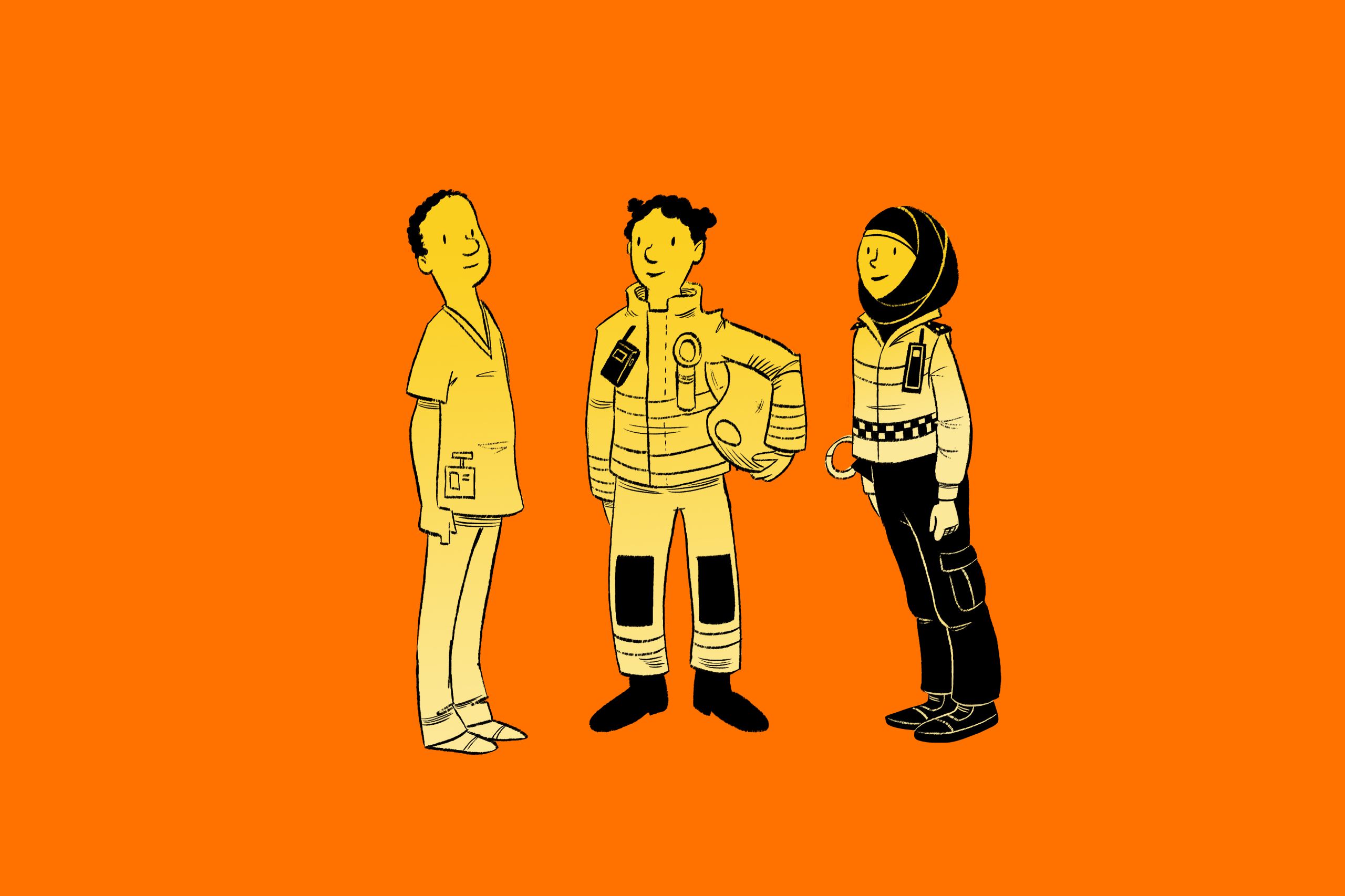How are Black, Asian and minority ethnic people disproportionately impacted by covid-19?

On 30 March, we, MPs on the Women and Equalities Select Committee, launched an investigation into how covid-19 impacted people with protected characteristics.
After 500 pieces of written evidence were submitted we concluded that to understand the issues we needed to split our research into three key areas.
One of those key areas was the disproportionate impact on Black, Asian, and minority ethnic (BAME) people.
34% of patients admitted to an Intensive Care Unit (ICU) with confirmed cases of coronavirus were from a BAME background.
Data from the Intensive Care National Audit and Research Centre

What is the issue?
In June, we heard evidence that 63% of healthcare workers who had died after contracting the virus had come from a BAME background.
BAME people were experiencing the effects of covid-19 more severely and often with more adverse outcomes in comparison to their White counterparts according to the ONS.
We wanted to know more. How had pre-existing inequalities impacted BAME people during the pandemic? How had the Government's response to covid-19 affected BAME people? What could, and should, be done by the Government and other public bodies to mitigate the impacts of the pandemic on BAME people?
We heard from experts, academics, people with lived experience and ministers across several months and identified five key areas of concern:
- the lack of data
- a lack of culturally competent guidance
- insufficient statutory sickness pay
- problems with Universal Credit system
- dismissing the no recourse to public funds
'Ethnicity should be recorded on death certificates to establish a complete picture of the impact on those from Black, Asian and minority ethnic backgrounds.'

Is the data accurate?
It became clear to us that the data being published on death and infection rates for BAME people was problematic for several reasons.
The ONS used 2011 census records and death registrations from England and Wales, but because the last census was completed in 2011, it was outdated.
Data on coronavirus death rates show significant differences between ethnic groups, however data about the BAME population is often presented as if they are all the same group.
What should the Government do?
- The Government should ensure that the ethnicity data collected is disaggregated.
- The Government should consider allowing the informant of a death to report the ethnicity of a deceased individual.
'There is not a word in Gujarati, Hindi, Punjabi or Urdu that you can use for “virus”. You need to work with the community groups and focus groups to make sure they are specifically directed at that language that they are working in.'

Is the guidance easy to understand?
Concerns have been raised since the beginning of the pandemic that the communication so far has not been targeted or designed for different communities.
We were told that where information was available, it was insufficient. It was just guidance written in English translated to other languages with a limited understanding of the cultural differences.
BAME individuals are more often reliant on their community networks to understand information. According to Naz Zaman, Chief Officer of the Lancashire BME Network, guidance is usually distributed through male community members; 'males in many communities are still the gatekeepers of knowledge'.
However, due to social distancing measures, community networks have been affected. So it has been harder for BAME people to access the support of their community networks in the usual way.
What should the Government do?
It is vital that Government guidance is accessible to everyone so that individuals can stay informed and prevent infection.
- The Government must ensure its guidance is culturally competent.
- The Government should liaise with BAME women and representatives of BAME women to encourage them to become Community Champions to reach those who are marginalised.
'One in five zero-hours contract workers are not eligible for statutory sick pay. That is a problem.'

Were BAME people receiving the same sick pay?
Zero-hours contracts
On 20 March, the Chancellor announced the Coronavirus Job Retention Scheme. The Government would cover 80% of worker’s wages up to £2,500 per month.
The eligibility guidance for the Government's furlough scheme states that zero-hours contract workers and agency workers could be furloughed if they were employed through an agency.
As a part of the Scheme, employers decide which employees to furlough. Some BAME workers on zero-hours contracts were being refused furlough by their employers. Instead of furloughing a zero-hours contract worker, an employer could reduce their working hours down to zero and therefore pay them nothing.
Statutory Sick Pay (SSP)
SSP was available to those who needed to self-isolate or were unable to work due to sickness and were off work.
The current SSP rate is £95.85 per week
A lot of ethnic minority people find themselves in precarious employment which means they don't reach the eligibility criteria to receive SSP. For example, some BAME individuals on a zero-hours contract found that they earnt less than the lower earnings limit. The Trades Union Congress estimated that two million workers did not earn enough to qualify.
What should the Government do?
- The Government must extend the eligibility criteria for Statutory Sick Pay to ensure all workers on zero-hours contracts can claim Statutory Sick Pay.
- The Commission for Race and Ethnic Disparities should review the zero-hours contract policy and consider the disproportionate impact it had on BAME workers during the pandemic.
'Lots of people have access to the internet but they tend to just do it all on their smartphones. Trying to apply for universal credit on your smartphone is not an easy thing to do. That also requires knowledge, confidence about the system and understanding the system.'

What were BAME people's experiences while applying for Universal Credit?
The coronavirus pandemic has lead to some people needing additional financial assistance. More people are turning to the Universal Credit system to access necessary support.
Universal Credit is managed by the Department for Work and Pensions (DWP). The system was introduced to simplify the existing benefits system.
On 9 June 2020, it was reported that 3.1 million people, from 2.5 million households had applied for Universal Credit between 1 March and 2 June 2020. For perspective, in March 2020, 3 million people were claiming; by July 2020 there were 5.6 million people.
Universal Credit is a digital service, applications and account management are done online. This can be challenging for people who, due to limited financial resources, lack access to technology or internet connection.
For BAME people this problem is particularly prevalent. Migrant Voice, a migrant-led organisation based in London, told us that “many people do not have funds for internet or equipment to access online information and activities”.
A Race Equality Foundation report (2016) found that for BAME people there is a double barrier, digital exclusion is coupled with a limited proficiency of English. The report explained that: for people who experience language barriers, the barriers exist whether the application is for one or multiple benefits.
What should the Government do?
- The Government should develop a mobile phone application so that people can access the service on their phones.
- The Government should review and publish a report on the barriers to accessing the Universal Credit application system. It should consider the issues caused by a limited English proficiency.
'Honestly, it is all just too crippling. I live in a refuge. I have no recourse to public funds. If I was not here, I would not have support. I feel that society has forgotten us and that the Government have forgotten vulnerable women.'

What if you have visa conditions limiting your access to money?
No recourse to public funds (NRPF) is a visa condition, where people who are subject to immigration control are not entitled to a majority of welfare benefits until they have been allowed to live in the country indefinitely.
At the end of 2019, up to 1.376 million people held valid UK visas that would usually have the NRPF condition attached to them. This significantly affects BAME communities as they are more likely to hold conditional visas.
Many of the Government’s measures introduced to mitigate the impacts of the coronavirus pandemic such as the moratorium on evictions and the Job Retention Scheme are not considered public funds so they are already available for those subject to the NRPF policy.
However, these measures do not go far enough for those subject to the NRPF policy.
'NRPF migrants feel compelled to go to work regardless of vulnerabilities or being high risk as they would otherwise have no income [...] It’s either go to work (often working in conditions that are not safe) or literally have no money to put food on the table.'
What should the Government do?
- The Government should suspend the NRPF policy for the duration of the pandemic.

The Government must now respond to our report.
Our report, 'Unequal impact? Coronavirus and BAME people' was published on 15th December 2020 and the Government has two months to respond to our recommendations.
Detailed information from our inquiry can be found on our website.
If you’re interested in our work, you can find our more on the House of Commons Women and Equalities Committee website. You can also follow our work on Twitter.
The Women and Equalities Committee examines the work of the Government Equalities Office (GEO). It holds Government to account on equality law and policy, including the Equality Act 2010 and cross Government activity on equalities. It also scrutinises the Equality and Human Rights Commission.

